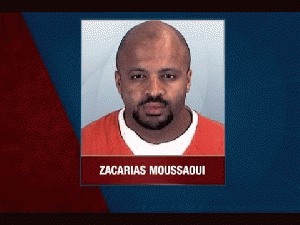Reprinted from Sputnik
In over 100 pages of testimony, filed in a federal court in New York earlier this week, Moussaui drops several House of Saud-related bombs. Not least that among leading al-Qaeda donors prior to 9/11 we find former Saudi intel chief Prince Turki al-Faisal (also a former great buddy of Osama bin Laden); notorious former ambassador to the US and failed sponsor of hardcore jihadis in Syria, Prince Bandar bin Sultan, aka Bandar Bush; darling of Western markets (and Rupert Murdoch) Prince al-Waleed bin Talal; and a who's who of Saudi Arabia's top Wahhabi clerics.
None of this is any novelty for those among us who, since Afghanistan in the 1980s, have been following the extraordinarily murky adventures of Wahhabi-sponsored/derived jihadism.
The information is even more relevant when compared to an upcoming book by Michael Springmann -- the former head of the US visa section in Jeddah, Saudi Arabia. In Visas for al-Qaeda: CIA Handouts that Rocked the World, Springmann essentially details how...
"...during the 1980s, the CIA recruited and trained Muslim operatives to fight the Soviet invasion of Afghanistan. Later, the CIA would move those operatives from Afghanistan to the Balkans, and then to Iraq, Libya, and Syria, traveling on illegal US visas. These US-backed and trained fighters would morph into an organization that is synonymous with jihadist terrorism: al-Qaeda...."The political purpose of these revelations, from Washington's point of view, is to put pressure on the House of Saud to keep pumping their oil surplus. The recent rebound in oil is causing some hysteria in Washington, because it may be linked to the Saudis having second thoughts about their oil price war against, most of all, Russia."
Well, in the beginning there was not even an "organization." By the mid-1980s, "al-Qaeda" was only a database in a computer linked to the communications department of the secretariat of the Islamic Conference. At the time, when Osama bin Laden was nothing but a proxy US agent operating in Peshawar, al-Qaeda's intranet was a good communication system for fighters to exchange code messages. "al-Qaeda" was neither a terrorist organization -- an Islamist army -- nor personal property of Osama bin Laden.
Later on, in the mid-2000s in Iraq, Abu Musab al-Zarqawi -- the Jordanian thug precursor of ISIS/ISIL/Daesh -- was recruiting militants/fanatics/angry young men by himself, without any direct input by bin Laden. His set-up was al-Qaeda in Iraq (AQI).
So al-Qaeda was and remains a brand, a successful franchising. It is not, and never was, an organization; rather a key operational element of an intel agency. Thus the categorical imperative; al-Qaeda is essentially a derivation of Saudi intel. The best evidence would be the murky role, from the beginning, of wily Prince Turki, the former, long-time director general of the Mukhabarat, the House of Saud intel (but Turki is not talking, and he never will). Turkish intel, for its part, has never bought the myth of an "al-Qaeda" organization.
Al-Qaeda in the House
The Moussaui revelations become really explosive when dots are connected between the political ideology of the House of Saud, al-Qaeda's political platform, and even the warped ideology of the fake Caliphate of ISIS/ISIL/Daesh. The matrix for all these is 19th century Wahhabism -- and its medieval interpretation/appropriation of Islam.
House of Saud equals al-Qaeda equals the Caliphate. Once this "secret" bombshell is out of its Arabian Pandora's box, the whole US rationale behind that gift that keeps on giving, the "war on terror" -- which for the Pentagon equals Infinite War -- collapses.
And that brings us to the new head of the House of Saud, Prince Salman, fast on his way to (literal) dementia. During the 1990s, he was a staunch supporter of Salafi-jihadism, and that of course included bin Laden. And later on, as Governor or Riyadh, he excelled on the hatred of Shi'ites department, which expanded to hatred of Iran as a whole -- not to mention hatred of any vaguely remote democratic practices inside Saudi Arabia.
It's useless to expect Salman to "reform" -- as much as it's useless to expect the Obama administration to let go of Washington's love affair with "our" favorite bastards in the Persian Gulf. But now there's a key new element; House of Saud desperation.
(Note: You can view every article as one long page if you sign up as an Advocate Member, or higher).






